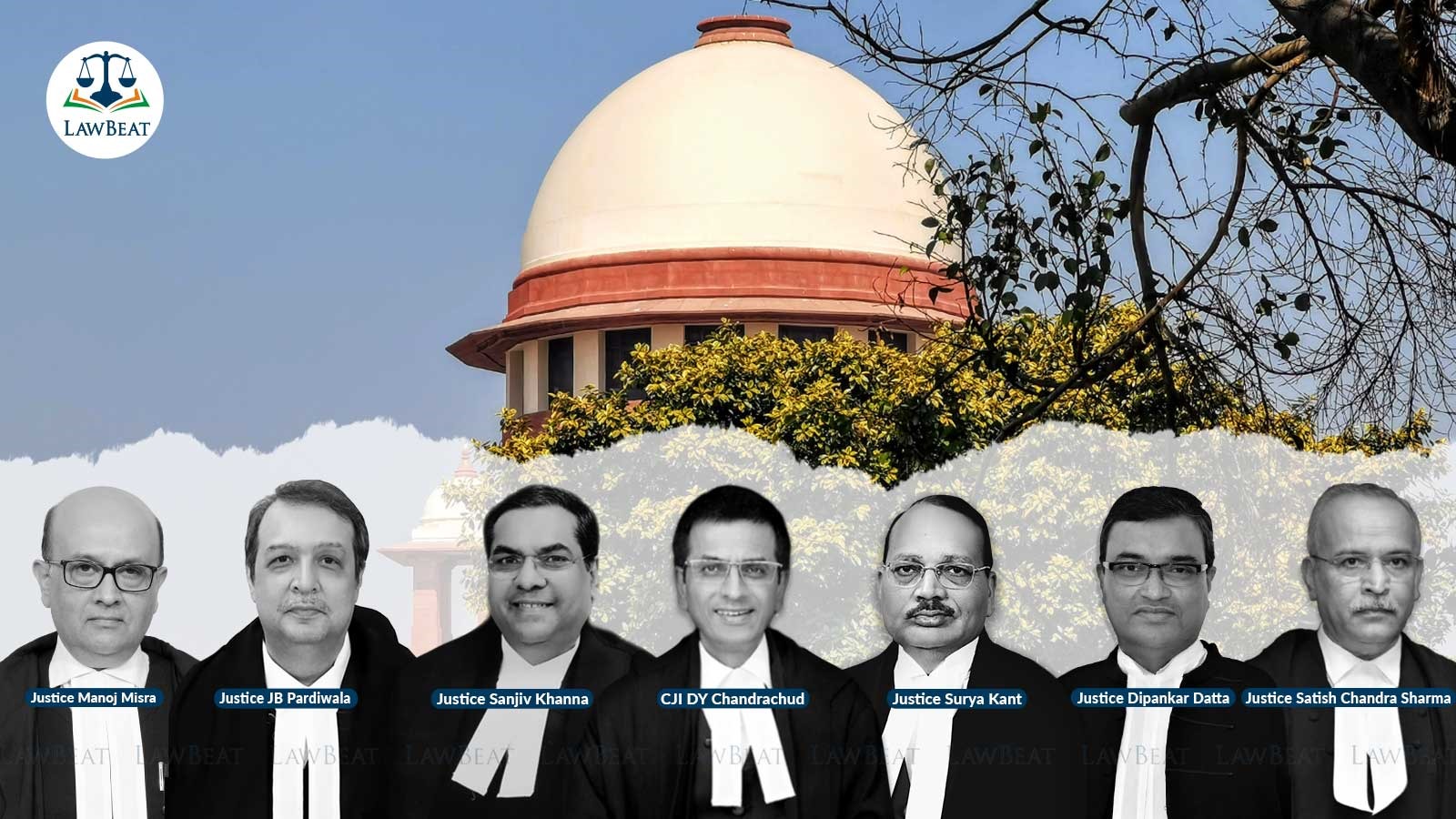AMU Minority Status: Supreme Court reserves judgment

The Supreme Court has been told that minority protection is a key feature of secularism under the Indian Constitution and it is about bringing equality keeping in mind the autonomy of minority institutions
A 7-judge bench of the Supreme Court today reserved its verdict in the plea by Aligarh Muslim University (AMU) to decide on the question whether an educational institution created by a parliamentary statute enjoy minority status under Article 30 of the Constitution.
The Constitution Bench of the Supreme Court of India led by Chief Justice of India D Y Chandrachud had begun hearing the matter on January 9, 2024.
Today before closing the matter for judgment, the bench also comprising Justices Sanjiv Khanna, Surya Kant, JB Pardiwala, Dipankar Datta, Manoj Misra and Satish Chandra Sharma, heard the rejoinder submissions made on behalf of AMU.
Yesterday, while arguing against the grant of minority status, Senior Advocate NK Kaul had told the bench that the British government had established AMU not the Muslims.
"The argument on rights of Muslims being in danger is completely misplaced. Which right of reservation is being taken away.. nothing happening to the secular structure of the country...all citizens are equal...", Kaul had added.
Court was further told that the entire argument of historical facts and antecedents being ignored was completely misplaced.
"An emotive appeal has been made that we are asking for a bit of reservation and you are snatching it away..when did you ever have reservation..the judgment in basha has been in place for 57 years..you never had it till 2004-05 when there was a change in government..", a further submission was made.
Earlier, the Central government had submitted before the Supreme Court that its 2016 decision to withdraw the special leave petition against the Allahabad High Court's 2006 order on minority status of Aligarh Muslim University, was based upon the factual and constitutional considerations alone.
Claiming that the AMU unfortunately tried to give it a political hue, the government has also claimed the previous decision by the UPA government to challenge the HC's order of 2006 was against public interest and contrary to the policy to reservation for the marginalised sections of the society, besides being in the teeth of a five-judge bench decision in the Azeez Basha’s case in 1967.
In his written submission, Solicitor General Tushar Mehta said that the Constitution did not treat Aligarh Muslim University either as minority institution or otherwise.
While hearing the case, top court had questioned the petitioners if an educational institution would lose its minority character after it is converted by a statute into a body corporate.
In 2005, AMU had reserved 50% seats in postgraduate medical courses for Muslim candidates by claiming it to be a minority institution. This came to be set aside by the Allahabad High Court. A year later, in 2006, the then UPA Union government and AMU challenged the High Court's decision before the Supreme Court.
Later, in 2016, the National Democratic Alliance government, withdrew from the appeal contending that it does not acknowledge the minority status of the University.
Case Title: Aligarh Muslim University Through its Registrar Faizan Mustafa vs. Naresh Agarwal and Ors.
